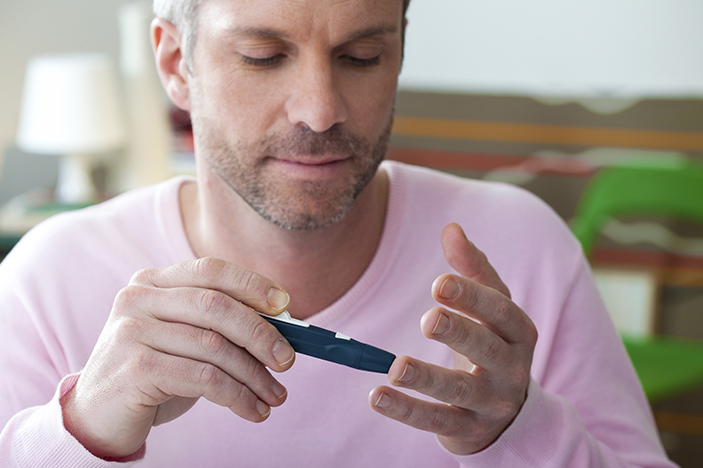Diabetes is a chronic condition that affects millions of people worldwide. It is well known that diabetes can lead to various health complications, but recent research has highlighted a significant difference in how these complications affect men and women. Men with diabetes are at a higher risk of experiencing severe health problems compared to women with diabetes. Let's explore the findings of this research, the reasons behind the increased risks for men, and the importance of targeted screening and prevention strategies.
A comprehensive study by researchers, including those from The University of Sydney, Australia, has shed light on the sex-based differences in diabetes complications. The study included 25,713 participants aged 45 and above, all diagnosed with either type 1 or type 2 diabetes. Over ten years, these individuals were monitored for major health issues related to diabetes. The study's findings were published in the "Journal of Epidemiology and Community Health."
Here are some of the critical findings from the study:
- Cardiovascular Complications: 44% of men experienced cardiovascular issues, including stroke and heart failure, compared to 31% of women. This indicates that diabetic men are 51% more likely to develop heart problems than diabetic women.
- Leg and Foot Conditions: 25% of men developed conditions related to the leg and foot, such as ulcers and bone inflammation, compared to 18% of women. Men were found to be 47% more likely to experience these complications.
- Kidney Issues: 35% of men developed kidney conditions, including chronic kidney disease and kidney failure, compared to 25% of women. Diabetic men were 55% more likely to suffer from kidney complications.
- Eye Complications: While the overall risk of developing eye complications was similar between men and women, men had a 14% higher risk of developing sight-threatening eye diseases like diabetic retinopathy.
These findings highlight the significant health risks that diabetic men face and expose the importance of addressing these issues through targeted interventions.
Why Men Face Higher Risks
The study suggests several reasons why men with diabetes are more likely to develop severe complications than women:
1. Risk Factors: Men in the study were more likely to have well-known risk factors such as high blood pressure, high cholesterol, and smoking. These factors significantly contribute to the development of cardiovascular and kidney diseases.
2. Lifestyle Choices: Men may be less likely to adopt healthy lifestyle changes, such as eating a balanced diet, exercising regularly, and avoiding smoking and excessive alcohol consumption. These lifestyle factors are crucial in managing diabetes and preventing complications.
3. Preventive Measures: Men might be less inclined to take preventive medications or undergo regular health checks that can help detect and manage potential complications early.
4. Biological Differences: There may be inherent biological differences between men and women that affect how their bodies respond to diabetes and its complications.
The Importance of Targeted Screening and Prevention
Given the higher risk of complications among men with diabetes, it is essential to implement targeted screening and prevention strategies. Here are some key approaches:
- Regular Health Checks: Men with diabetes should undergo regular health checks to monitor their blood sugar levels, blood pressure, cholesterol levels, and kidney function. Early detection of any issues can lead to timely intervention and better management of the condition.
- Healthy Lifestyle: Adopting a healthy lifestyle is crucial for managing diabetes. This includes eating a balanced diet rich in fruits, vegetables, whole grains, and lean proteins, engaging in regular physical activity, maintaining a healthy weight, and avoiding smoking and excessive alcohol consumption.
- Medication Adherence: Taking prescribed medications as directed by a healthcare provider is essential in managing diabetes and preventing complications. Men should be encouraged to adhere to their medication regimen and not skip doses.
- Education and Awareness: Raising awareness about the risks associated with diabetes and the importance of preventive measures can empower men to take charge of their health. Educational programs and resources can provide valuable information on managing diabetes effectively.
Diabetes is a challenging condition that requires careful management to prevent serious health complications. The recent research highlighting the increased risks for men with diabetes highlights the need for targeted interventions. By focusing on regular health checks, promoting healthy lifestyle choices, ensuring medication adherence, and raising awareness, we can help men with diabetes lead healthier, more fulfilling lives.
At OJSP, we are committed to providing the best care and support for individuals with diabetes. Our range of Ayurvedic Medicines offers a natural and effective way to manage diabetes and helps regulate blood sugar levels, improve insulin sensitivity, and promote overall well-being.
Together, we can make a significant difference in the lives of those affected by diabetes. Let’s take proactive steps towards better health and well-being for everyone

 By focusing on regular health checks, promoting healthy lifestyle choices, ensuring medication adherence, and raising awareness, we can help men with diabetes lead healthier, more fulfilling lives.
By focusing on regular health checks, promoting healthy lifestyle choices, ensuring medication adherence, and raising awareness, we can help men with diabetes lead healthier, more fulfilling lives.




















.jpeg)


.jpeg)



.jpeg)
.jpeg)






.jpeg)





